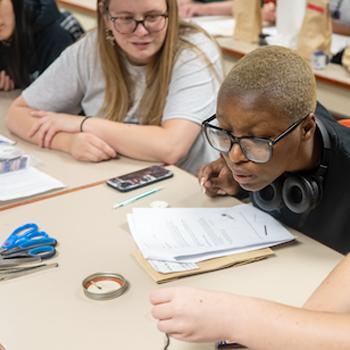Students with a B.S. degree in chemistry–pre-medicine are well-prepared to pursue medical school upon completion of this degree. However, other higher education and career opportunities also exist depending upon the interest of the graduate.
A large number of our graduates go on to take advanced degrees in all areas of chemistry and biochemistry. Graduates of our program are employed in environmental, pharmaceutical and other chemical companies throughout the country. Jobs held by recent graduates include applications lab technician, attorney, associate chemist, auditor, chemist, research and discovery chemist, chemistry and physics teacher, criminalist, Doctor of Osteopathic Medicine, drug analyst, environmental engineer, pharmacist, physician, QA process chemist, and technology transfer manager.


